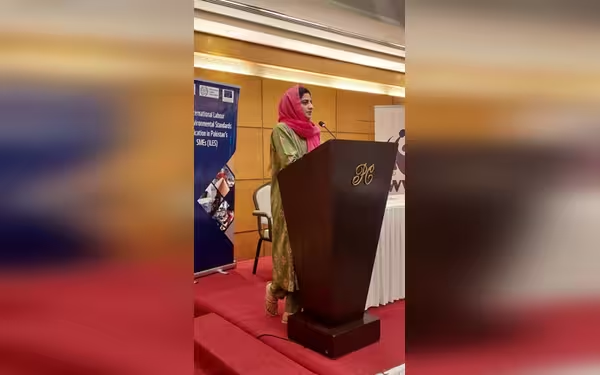Thursday, July 4, 2024 06:08 PM
WWF-Pakistan and SEPA Leading Environmental Initiatives in Textile Industry
- 50 SMEs in Pakistan adopt eco-friendly practices, saving costs and reducing emissions.
- Capacity-building workshops educate industry stakeholders on environmental laws and standards.
- SEPA digitalizes environmental monitoring for textile and leather industries in Sindh.
 Image Credits: dailytimes_pk
Image Credits: dailytimes_pkPakistan's textile and leather industries are actively adopting eco-friendly practices and complying with global environmental standards to enhance competitiveness and promote sustainable development. Initiatives led by WWF-Pakistan and SEPA focus on water conservation, carbon reduction, and digitalized environmental monitoring processes.
Pakistan's textile and leather industries, vital components of the country's economy, are actively working towards meeting global environmental standards to remain competitive in the international market. This commitment was highlighted during a recent media briefing organized by WWF-Pakistan under the ILES project, supported by the European Union.
The ILES project, spanning over 8 years, aims to enhance compliance with international labor and environmental standards in key industrial sectors of Pakistan, with a particular focus on textiles and leather. These sectors play a crucial role in Pakistan's export revenue generation.
As part of the project, more than 50 Small and Medium Enterprises (SMEs) have adopted eco-friendly practices, leading to substantial water and energy savings, reduced chemical usage, and lower carbon emissions. These efforts have resulted in annual cost savings of around 530 million rupees.
In addition to implementing sustainable practices, capacity-building workshops have been conducted nationwide to educate industry stakeholders on environmental laws and standards. Furthermore, documentaries have been created to raise awareness about resource conservation within these sectors.
Collaborating with WWF-Pakistan, SEPA is spearheading the digitalization of environmental monitoring processes for textile and leather industries in Sindh. This shift towards online monitoring signifies a significant advancement in addressing environmental issues and promoting sustainable development in the region.
Industry representatives stress the significance of water conservation, carbon reduction, and wastewater treatment for ensuring the sustainable growth of Pakistan's industrial sectors.
The proactive steps taken by Pakistan's textile and leather industries towards adopting eco-friendly practices and complying with global environmental standards not only enhance their competitiveness in the international market but also contribute to sustainable development and resource conservation. These initiatives not only benefit the economy but also play a crucial role in safeguarding the environment for future generations.













